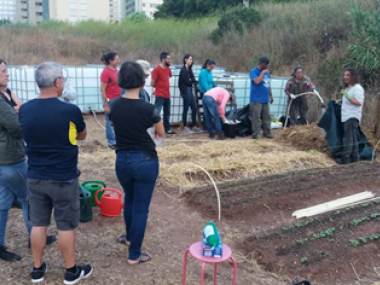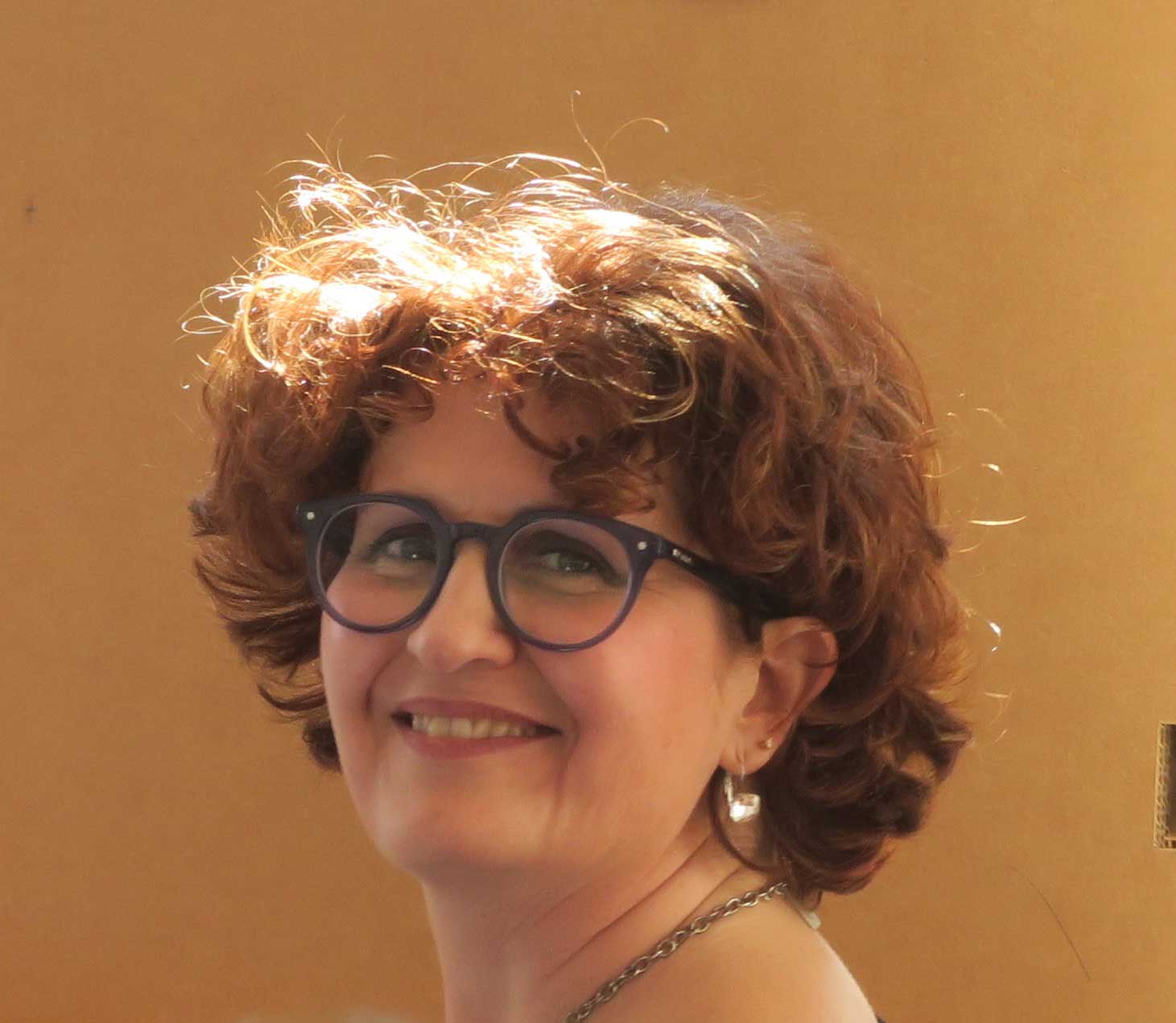LOURES TRANSFER STORY
Edited on
04 June 2021Loures Municipality joined the RU:RBAN project with great enthusiasm because it is a project well adapted to the physical characteristics of its territory, its urban occupation and citizens needs and hopes. It is important to mention that4666, in addition to the dedication of the municipal political leaders, there was also a demand for a project for the future with sustainable, inclusive and healthy ambitions.

Previously to joining RU:RBAN, different initiatives were developed, by or with the support of Loures Municipality, on the topic of urban gardens. Mainly pilot projects or small specific projects in specific areas:
- A pilot project , started in 2012, on organic urban gardens on a municipal land for recreational purposes or household income supplement, with compulsory trainning on organic farming.
- Social urban gardens – urban gardens developed in the neighbourghood of Social Housing owned by the municipality, to complement the family income.
- Women4Agri – urban gardens developed to involve foreigner/migrant unemployed women.
- Heart Gardens – urban gardens to promote the integration of different generations and experiences and knowledge exchange.
There were different procedures and specific regulations for each type of garden without a broad and integrated approach.
The ambitions when entering this partnership of 7 European cities were: 1) to create a governance model for sustainable and inclusive urban gardens, based on a common regulation and promoting the organic farming mode of production involving all the stakeholders in order to promote a sustainable community; 2) to implement, according Rome’s good practice, 3 community urban gardens, with completely different profiles in terms of social and economic dynamics and different practices and experiences (Conventinho Urban Garden, Petrogal Urban Garden, Terraços da Ponte/Mocho Urban Garden); 3) to approve a Municipal Strategy for Community Urban Gardens.
For this purpose the Loures Municipality gathered a Local Action Group with stakeholders from the most diverse backgrounds: NGOs, schools, the Faculty of Agronomy of Lisbon, agricultural cooperatives, several local associations and representatives of urban parks, to adapt Rome’s good practice to Loures’ municipality local reality. The development of the Rome regulation adaptation is a good example. The regulation on urban gardens has already been approved for public consultation. The ULG members participated in TMN meetings and the gardenisers had specific training during the Loures TNM.
Also important was the role of gardenisers, who proved to be the ones responsible for helping to overcome the difficulties or barriers that arose at the beginning of the process or even in changing processes that were already ingrained in the agricultural techniques and products used, and were active also during the pandemic. Knowledge from the TNM was considered very important to exchange ideas and contact with other realities in Europe. Thus, the municipality of Loures chose to hire a company specialized in organic farming that trained the farmers and gardeners with new techniques, products and ways of organising the plots that were replicated by the Rome project.
The Urban Garden of Quinta do Conventinho - This urban garden was created during the RU:RBAN project. We can even say that RU:RBAN constituted a new community, in which the gardeners helped each other. In a first phase the Loures municipality supplied water with cisterns. In the meantime a well has been opened to supply water to the urban gardens.
The Petrogal Urban Garden - Bobadela – It is a 40-year-old urban garden. The great challenge for this horticultural park was to change mentalities of transforming the traditional vegetable garden into a garden with organic farming practices. Nowadays, farmers already recognise the advantages of this type of agriculture that produces healthy food with simple techniques and without chemical products. But this urban garden will soon undergo another change. Recently the decision was taken to urbanize this space. Thus, the Municipality of Loures is already preparing a new plot to relocate these gardeners in early 2021.
Urban garden at Quinta do Mocho/Terraços da Ponte - This urban garden is located near a social housing estate . However, the gardeners come from the various neighbourhoods of the city of Sacavém. Initially, the land needed to be cleaned. Thus, the Municipal Council of Loures developed efforts to treat the land to be occupied with urban gardens. The community also shows great enthusiasm for the project and for the production of healthy food. Also the exchange of seeds between people from different origins enriches the project.
But RU:RBAN does not end in 2021 as it is more than a project, it is a process in evolution of continuous and replicable improvement, in space and time. Thus, Loures City Hall has promoted, and will continue to promote the dissemination of the project, both through its social networks and through workshops with children. The dynamics and enthusiasm of the children in this project makes us optimistic about the future of a more sustainable and healthy environment. So far approximately 500 children have participated in the project in the workshops, but it is hoped all children in the municipality will also have this training. The municipal strategy for communitarian urban gardens was already drafted and the process is ongoing.
 Submitted by Patricia Hernandez on
Submitted by Patricia Hernandez on
